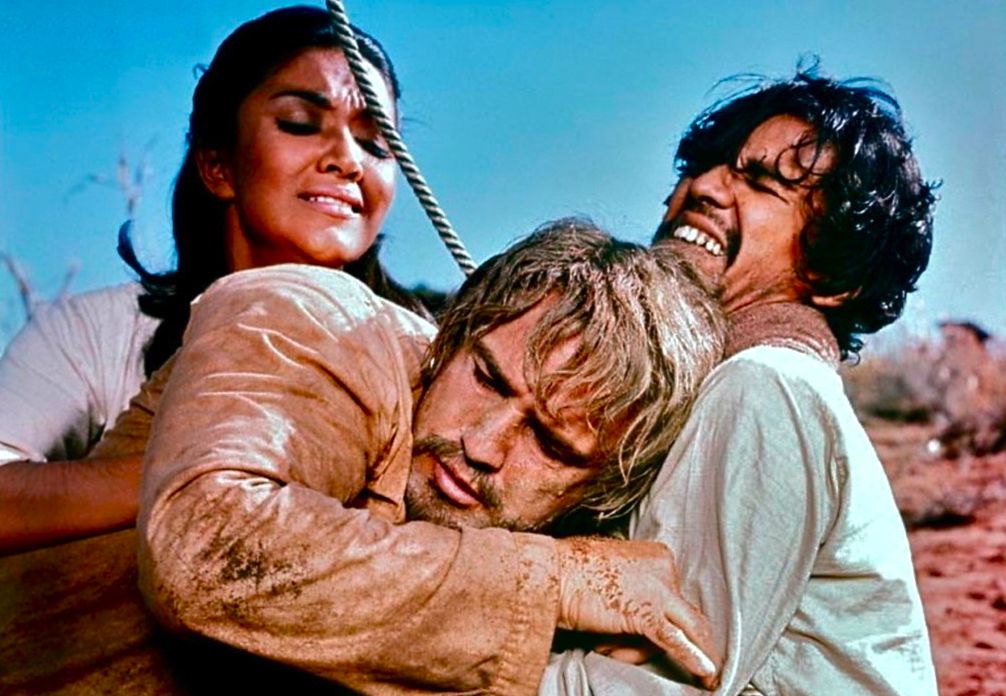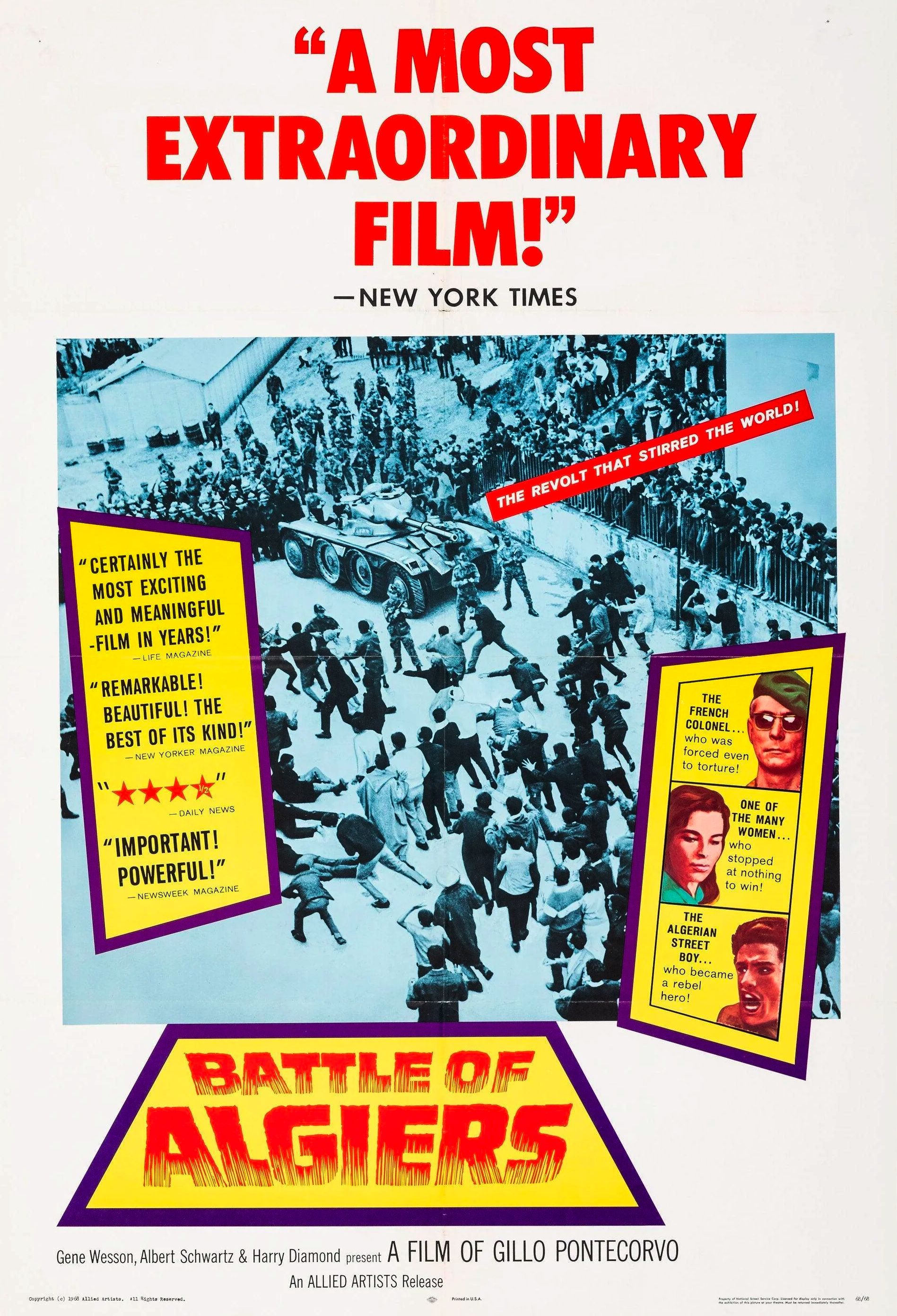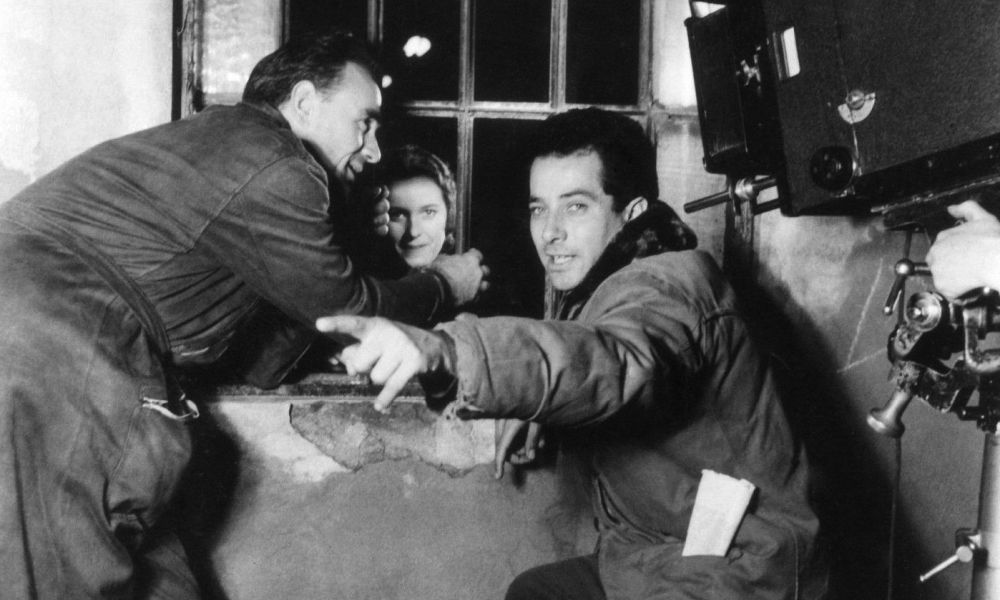"Gillo Pontecorvo is concerned with the oppressed, those kept down by the unjust and cruel use of power—and who will eventually rebel against the oppressor. ‘‘I’ve always wanted to look at man during the hardest moments of his life,’’ the filmmaker has stated. An examination of his filmography indicates that he has been true to his goals and ideals." - Rob Edelman (International Dictionary of Films and Filmmakers, 2000)
Gillo Pontecorvo
Key Production Countries: Italy, France
Key Genres: Drama, Political Drama, War, Historical Film, Docudrama, Crime
Key Collaborators: Franco Solinas (Screenwriter), Marcello Gatti (Cinematographer), Mario Morra (Editor), Ennio Morricone (Composer), Sergio Canevari (Production Designer)
Key Genres: Drama, Political Drama, War, Historical Film, Docudrama, Crime
Key Collaborators: Franco Solinas (Screenwriter), Marcello Gatti (Cinematographer), Mario Morra (Editor), Ennio Morricone (Composer), Sergio Canevari (Production Designer)
"The younger brother of Professor Bruno Pontecorvo, the Harwell scientist who defected in 1950, Gillo Pontecorvo is himself a Marxist, and his concern with imperialism and colonialism has been very clear in his major films. He worked as an assistant director, directed documentary shorts, and made his first feature in 1957. His second film Kapò, the story of a young Jewess in Aushcwitz, gained some international recognition, but with the third, The Battle of Algiers, Pontecorvo won the Golden Lion at Venice and enormous acclaim. This film of the Algerian struggle for independence was terse, exciting, and essentially fair-minded; it used real locations and many non-professional actors, and looked, and perhaps was, totally authentic." - The Illustrated Who's Who of the Cinema, 1983
"Pontecorvo’s films often grappled with themes of political struggle, oppression, and resistance, displaying his deep-rooted commitment to social justice. His narratives were typically grounded in historical or contemporary sociopolitical conflicts, and he had a particular interest in exploring the perspectives of the oppressed. His approach to filmmaking was characterised by a focus on authenticity and a deep empathy for his characters, evident in The Battle of Algiers, where he effectively humanises all sides of the conflict, providing a balanced and nuanced exploration of the Algerian War." - Bronze Screen Dream

Burn! (1969)
"His first features were clumsy infusions of large subjects and melodrama, especially Kapo, a concentration camp story. But six years later, still lacking facility, Pontecorvo made a fascinating commentary upon documentary, The Battle of Algiers, shot in actual locations and with actors and real-life participants. The French government impeded the release of the film, but it is far less hostile to them than it might have been." - David Thomson (The New Biographical Dictionary of Film, 2010)
"It was after seeing Rossellini’s Paisan that Gillo Pontecorvo decided on a career in filmmaking and Rossellinian neorealism is evident in both his breakthrough film, Kapo (1959), and his most celebrated work, The Battle of Algiers (1966). Much of Kapo rings harrowingly true— a young Parisian Jewish girl, sent to a concentration camp, passes for gentile and becomes a collaborator of the Nazis— but the finale nosedives into kitsch when love and redemption bloom with the arrival of a hunky Russian soldier. A tremendous step forward, The Battle of Algiers is the most extraordinary film about a revolution since classic Soviet cinema." - Elliott Stein (The Village Voice, 1999)
"With its consummate melding of suspense and documentary techniques, and its insights into the struggle between colonial martial law and the resistance, The Battle of Algiers (1965) is Gillo Pontecorvo's masterpiece. This classic of political cinema still retains so much currency that it was screened to military strategists in the Pentagon four decades after it was made. Sadly, Pontecorvo produced nothing to equal it in a career that was neither prolific nor consistent." - Tom Charity (The Rough Guide to Film, 2007)
"Above all, my main creative influence was Rossellini. I was also a friend of Fellini, who was an extremely intelligent, witty and creative person, but the cinema that I loved and wanted to make was very far from the world of Fellini. Rossellini, I repeat, was my model. He had the love and affection for reality which I have." - Gillo Pontecorvo (World Socialist Web Site, 2004)
Selected Filmography
{{row.titlelong}}
Gillo Pontecorvo / Fan Club
Gary Crowdus, Paul Greengrass, Steve McQueen, Ken Loach, Akin Omotoso, Philip Dodd, Masato Harada, Robert Cashill, Susan Vahabzadeh, Dan Georgakas, David Gritten, Zhang Ling.
Gary Crowdus, Paul Greengrass, Steve McQueen, Ken Loach, Akin Omotoso, Philip Dodd, Masato Harada, Robert Cashill, Susan Vahabzadeh, Dan Georgakas, David Gritten, Zhang Ling.
"Fan Club"
These film critics/filmmakers have, on multiple occasions, selected this director’s work within film ballots/lists that they have submitted.
These film critics/filmmakers have, on multiple occasions, selected this director’s work within film ballots/lists that they have submitted.


